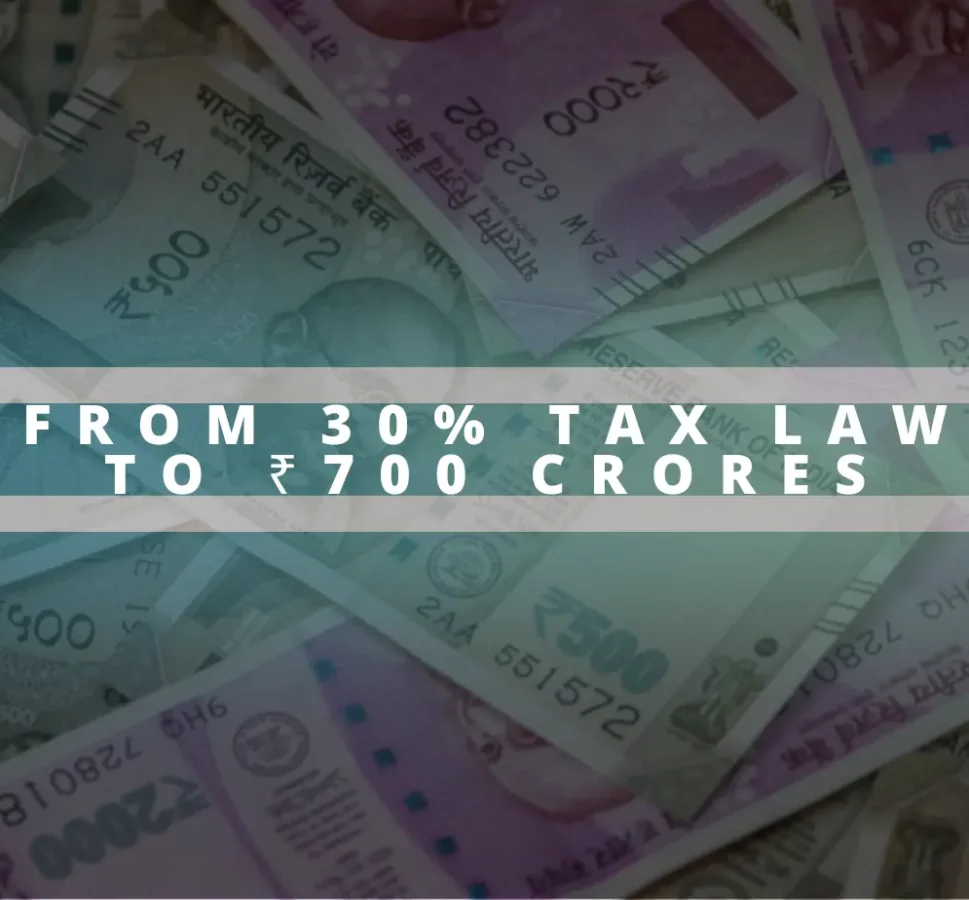- Indian Government collects ₹700 crores from novel TDS system for online gaming and crypto trading.
- India taxes virtual digital assets at a 30% rate, categorizing them as assets, not currency.
- Sanjeev Sanyal supports recognizing crypto as an asset, emphasizing international coordination in crypto regulation.
According to a major Indian news outlet, Nitin Gupta, the Chairperson of the Central Board of Direct Taxes (CBDT), announced that the government has generated over ₹700 crores in tax revenue during the current fiscal year after implementing a novel TDS system for online gaming and cryptocurrency trading.
During a conversation with the media, Gupta confirmed that in the first six months, a total of Rs 600 crore has been collected from online gaming companies. Furthermore, approximately ₹105 crore has been collected through TDS during the 2023-24 fiscal year, following the initiation of cryptocurrency taxation on April 1, 2022, according to Gupta’s report.
In India’s Union Budget for the year 2022, the government officially categorized digital assets, which encompass cryptocurrencies and non-fungible tokens (NFTs), as “Virtual Digital Assets.” Subsequently, any income generated from the transfer of these virtual digital assets, including cryptocurrencies and NFTs, became subject to a 30% tax rate.
In an exclusive interview with Moneycontrol, Sanjeev Sanyal, a member of the Economic Advisory Council to the Prime Minister (EAC-PM), expressed his support for recognizing cryptocurrency as an asset class in India. He explained:
“It should be clear that we do not think of cryptocurrency as a currency, but as an asset. In which case it should be taxed like any other asset, which is what we have done and I am in favour of it.”
Sanjeev Sanyal, member of the Economic Advisory Council to the Prime Minister
He further explained that India is actively promoting the adoption of the Structured Financial Messaging System (SFMS) in the wake of the significant success of the unified payments interface (UPI). In a G20 declaration, India has voiced its support for the development of an international framework for regulating crypto assets. Sanyal emphasized that such regulation must be coordinated on an international scale, as unilateral efforts by individual countries would not be effective.
Despite India’s recent introduction of various tax regulations in the cryptocurrency sector, it continues to maintain its position as the second-largest cryptocurrency market globally, as reported by the New York-based blockchain analysis firm Chainalysis.
Chainalysis said that India has become the world's second-largest cryptocurrency market based on ra estimated transaction volume, receiving an estimated $268.9 billion in crypto assets from July 2022 to July 2023. India taxes cryptocurrency at a much higher rate than most other… pic.twitter.com/egn7GIt4xS
— Wu Blockchain (@WuBlockchain) September 20, 2023
The report emphasized that the Central and Southern Asia and Oceania (CSAO) region is home to one of the most vibrant and dynamic cryptocurrency markets in the world.






